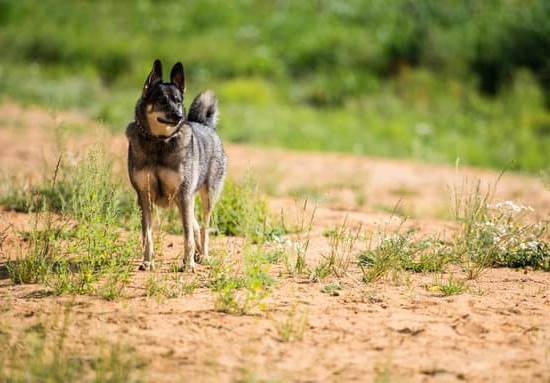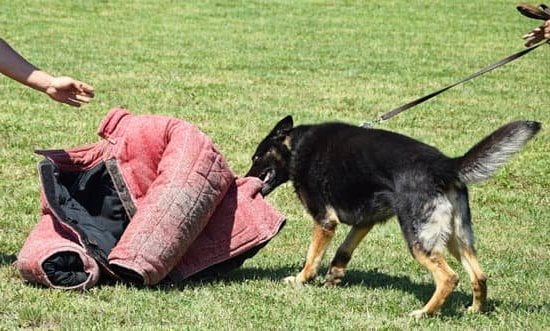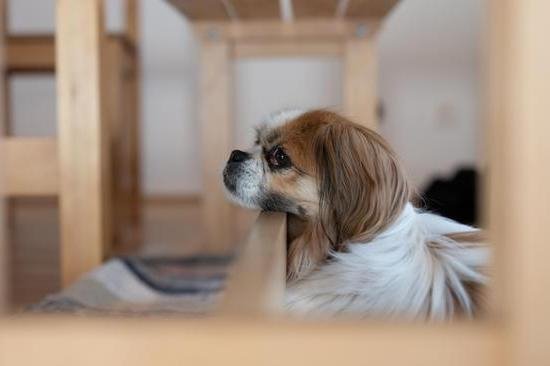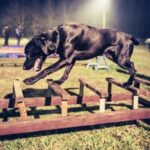Can an older dog be potty trained? Potty training older dogs is a common concern for pet owners, and it is possible with the right approach and understanding of their behavior. While there may be misconceptions about the feasibility of potty training older dogs, it is important to recognize the significance of this training for their overall well-being.
As our canine companions age, they may experience changes in behavior and health that can impact their ability to maintain good potty habits. Understanding these factors is crucial in addressing any challenges that may arise during the potty training process. By assessing the feasibility of potty training an older dog and establishing a routine, pet owners can set realistic expectations for their pet’s progress.
In this article, we will explore the reasons why older dogs may struggle with potty training, consider the factors to determine if an older dog can be successfully potty trained, and provide insights into creating an effective potty training routine. By shedding light on these aspects, pet owners can gain a better understanding of how to approach potty training for their aging furry friends.
Understanding the Behavior of Older Dogs
Older dogs may struggle with potty training for various reasons, and it is essential for pet owners to understand their behavior in order to effectively address the issue. Health issues can significantly impact an older dog’s ability to control their bladder and bowel movements. Conditions such as arthritis or cognitive dysfunction syndrome can make it challenging for older dogs to signal when they need to go outside or use a designated area indoors.
Additionally, anxiety and stress can also contribute to potty training difficulties in older dogs. Changes in routine, environment, or even the presence of new pets or family members can cause anxiety that affects their bathroom habits.
Impact of Health Issues
Older dogs are more prone to health issues that affect their potty training abilities. Arthritis, for example, can make it difficult for them to reach their usual elimination spot, causing accidents inside the house. It is important for pet owners to consider their older dog’s physical limitations when establishing a potty training routine.
Anxiety and Past Experiences
Anxiety and past experiences also play a significant role in an older dog’s ability to be potty trained. If an older dog has experienced trauma or neglect in the past, they may have developed negative associations with particular surfaces or environments, leading them to avoid those places when they need to relieve themselves. Understanding these behavioral factors is crucial in addressing any potty training challenges that an older dog may face.
By understanding these factors influencing the behavior of older dogs, pet owners
Assessing the Feasibility of Potty Training an Older Dog
Factors to Consider Before Potty Training an Older Dog
Before embarking on potty training for an older dog, it is important to consider various factors that can impact the feasibility and success of the training. One key consideration is the dog’s overall health and any physical limitations they may have.
Health issues such as arthritis or incontinence
Another factor to consider is the dog’s history and past experiences. Older dogs may have ingrained habits or negative associations with certain potty behaviors due to past experiences, so it is important to assess whether these issues may hinder the potty training process. Lastly, the owner’s commitment and ability to dedicate time and effort to potty training are essential considerations before starting the process with an older dog.
Tips for Determining Feasibility of Potty Training
There are several tips that can help determine whether an older dog can be successfully potty trained. Observing the dog’s behavior and receptiveness to training cues is crucial in assessing their suitability for potty training.
If the older dog demonstrates a willingness to learn and adapt, it
It is also important for owners to realistically evaluate their own commitment and resources available for potty training. Assessing whether there is sufficient time, patience, and consistency in implementing a potty training routine for an older dog
Establishing a Potty Training Routine for an Older Dog
Potty training an older dog may seem like a daunting task, but with patience, consistency, and the right approach, it is definitely possible. Before embarking on this journey, it’s important to assess the feasibility of potty training an older dog.
Factors such as the dog’s health, previous experiences, and anxiety levels can all play a role in their ability to learn new habits. It’s also essential to consider your own schedule and commitment level when deciding to start potty training.
Once you’ve determined that potty training is feasible for your older dog, the next step is to establish a routine. Just like with puppies, older dogs benefit from having a consistent bathroom schedule. Take note of when your dog typically needs to go potty and create a routine around those times. For example, if your dog usually needs to go after meals or first thing in the morning, be sure to take them outside at those times.
In addition to creating a routine based on your dog’s natural bathroom habits, it’s important to set clear boundaries and expectations. Designate a specific area for potty breaks and consistently bring your dog there whenever it’s time for them to go. Over time, they will come to associate that spot with going potty, making the training process more effective.
| Feasibility of Potty Training | Establishing Routine |
|---|---|
| Assess factors such as health, anxiety levels, previous experiences | Create a consistent bathroom schedule based on natural habits |
| Consider personal commitment and schedule before starting training | Set clear boundaries and designate a specific potty area |
Addressing Challenges and Setbacks in Potty Training
Potty training an older dog can come with its fair share of challenges and setbacks. It’s important to understand that older dogs may have ingrained behaviors or health issues that can make potty training more difficult. However, with patience and the right approach, it is possible to overcome these challenges and successfully potty train an older dog.
Here are some common challenges in potty training older dogs:
1. Incontinence: Older dogs may suffer from incontinence due to age-related health issues, such as bladder control problems or mobility issues. This can make it challenging for them to hold their bladder or signal when they need to go outside.
2. Anxiety: Some older dogs may experience anxiety or stress-related behaviors that can affect their potty training. Changes in their environment or routine, as well as past negative experiences, can contribute to anxiety-related accidents in the house.
3. Cognitive Decline: As dogs age, they may experience cognitive decline, which can impact their ability to remember potty training cues or follow a routine. This can result in accidents indoors and difficulty learning new behaviors.
To address these challenges and setbacks in potty training older dogs, consider the following tips:
– Be patient and understanding with your older dog’s limitations.
– Keep a consistent routine for feeding, bathroom breaks, and exercise to help regulate your dog’s bathroom habits.
– Consider using belly bands or diaper wraps for male dogs with urinary incontinence.
– Seek guidance from a veterinarian if you suspect any underlying health issues contributing to your dog’s potty training difficulties.
By addressing these challenges with empathy and patience, you can help your older dog overcome setbacks and achieve success in their potty training efforts.
Utilizing Positive Reinforcement Techniques
When it comes to potty training an older dog, utilizing positive reinforcement techniques can be a game-changer. While some may doubt the ability to train older dogs, the truth is that with the right approach, patience, and consistency, older dogs can learn new habits. Positive reinforcement is a powerful tool that can help shape desired potty training behaviors in older dogs.
Here are some effective positive reinforcement techniques that can help in potty training an older dog:
- Use of treats: Offering small treats as rewards for successful potty breaks can motivate older dogs to repeat the behavior.
- Verbal praise: Speaking in an upbeat and encouraging tone when the older dog successfully goes potty can reinforce the desired behavior.
- Physical affection: Petting, cuddling, and offering physical affection after a successful potty break can show older dogs that they have done well.
- – Clicker training: The use of a clicker to mark the exact moment when the older dog exhibits good potty behavior can be effective in reinforcing the behavior.
In addition to these techniques, it’s important to remain patient and consistent throughout the potty training process with an older dog. Remember that every dog is different, so it’s essential to find what motivates and rewards your specific older dog during the training process. By utilizing positive reinforcement techniques, you can develop good potty habits in your older dog and celebrate success along the way.
Seeking Professional Assistance for Potty Training an Older Dog
Seeking Professional Assistance for Potty Training an Older Dog
As with any training process, potty training an older dog can be a challenging task. While many pet owners may opt to take on this responsibility themselves, there are instances where seeking professional assistance becomes necessary. Professional trainers and behaviorists play a crucial role in addressing specific issues that may be hindering your older dog’s potty training progress.
When considering professional assistance for potty training an older dog, it is essential to assess the severity and complexity of the potty training challenges you are facing. If your older dog has significant health issues or behavioral problems that could be contributing to their potty training struggles, the expertise of a professional may be beneficial.
Additionally, if you have attempted various training methods without success, seeking guidance from a professional can provide a fresh perspective and tailored solutions for your older dog’s needs.
Professional trainers and behaviorists can evaluate your older dog’s individual circumstances and create a customized potty training plan that addresses their specific challenges. They can also provide valuable insights into understanding your older dog’s behavior and motivations, which is crucial for successful potty training. With their expertise, they will be able to identify underlying causes of potty training issues and develop effective strategies to overcome them.
Furthermore, seeking professional assistance for potty training an older dog can also benefit pet owners who lack experience or feel overwhelmed by the process. Professional trainers can offer guidance, support, and hands-on demonstrations to ensure that pet owners are equipped with the knowledge and skills needed to effectively train their older dogs. Ultimately, enlisting the help of a professional can lead to more efficient and successful potty training outcomes for older dogs.
| Benefit | Explanation |
|---|---|
| Customized Training Plan | Professional trainers can create personalized plans based on an older dog’s unique challenges. |
| Guidance & Support | Pet owners receive valuable guidance and hands-on demonstrations from professionals. |
Celebrating Success and Maintaining Good Potty Habits
In conclusion, potty training an older dog is definitely possible with the right approach and mindset. While it may require more patience and understanding than training a young puppy, older dogs can absolutely learn new habits and behaviors. It’s important to remember that every dog is unique, and factors such as health issues, anxiety, and past experiences can play a significant role in their ability to be successfully potty trained.
By understanding the behavior of older dogs and assessing the feasibility of potty training, pet owners can determine if their older dog can be effectively potty trained. Establishing a consistent routine and utilizing positive reinforcement techniques are key components of the training process. It’s essential to celebrate success and maintain good potty habits once training efforts have been successful.
Ultimately, seeking professional assistance from trainers or behaviorists can also be a beneficial option for pet owners struggling with potty training an older dog. With dedication, patience, and the right approach, older dogs can learn to develop good potty habits and live happily alongside their owners. So in answer to the question “Can an Older Dog Be Potty Trained?” – yes, it is definitely achievable with the right guidance and commitment from pet owners.
Frequently Asked Questions
How Long Does It Take to Potty Train an Older Dog?
The time it takes to potty train an older dog can vary depending on the dog’s previous habits, health, and temperament. It may take a few weeks to several months to fully train them.
At What Age Is It Too Late to Potty Train a Dog?
It is never too late to potty train a dog. While it may be more challenging to train an older dog, with patience and consistency, they can still learn new habits at any age.
Are Older Dogs Harder to Potty Train?
Older dogs can be harder to potty train compared to puppies due to established habits and potential health issues. However, with positive reinforcement and a consistent routine, it is possible to successfully potty train them.

Welcome to the blog! I am a professional dog trainer and have been working with dogs for many years. In this blog, I will be discussing various topics related to dog training, including tips, tricks, and advice. I hope you find this information helpful and informative. Thanks for reading!





